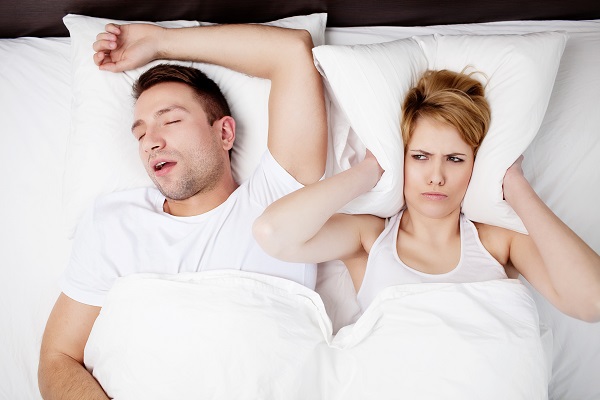3 Tips for Adjusting to a Snoring Appliance

Over time, a snoring appliance helps to improve the quality of sleep for both you and your bed partner, if you have one. Advancing your lower jaw forward and holding it in place while you sleep helps prevent tissues in the back of your throat from collapsing on themselves. Compared to CPAP, a dental appliance is a much less cumbersome and more comfortable way to treat sleep apnea. However, it takes time for your body to get used to it.
Common snoring appliance issues
Once your body gets used to the appliance, you should be able to sleep comfortably with it in your mouth all night. However, it typically takes several weeks to adjust to the appliance, during which time you may experience the following issues.
Gagging
Gagging is a natural reflex to prevent you from choking. However, if your gag reflex is particularly sensitive, inserting the appliance into your mouth may trigger it.
Unconscious removal
Even while you are sleeping, your brain is still working to monitor your condition. Until you adjust to your snoring appliance, your brain may recognize it as a foreign object and prompt you to react unconsciously to remove it while you sleep.
Drooling
A foreign object in your mouth may be mistaken for food. Therefore, it may trigger a reaction for your mouth to produce more saliva.
Discomfort
A snoring appliance is made of hard plastic that is designed to fit tightly over your teeth. However, the tightness combined with the sensation of the hard plastic against the tissues of your mouth can be uncomfortable until you get used to it.
Snoring appliance adjustment tips
Most importantly, be patient with the process and remember that the adjustment period can take up to three weeks. Here are some more specific tips.
1. Wear your appliance consistently
For your body to become accustomed to your snoring appliance, you need to wear it every night. If you only wear it periodically, the body is more like to perceive it as a foreign object. If you wake up in the middle of the night and find you have unconsciously removed it, put it back in.
2. Practice wearing it during the day
If you put in your appliance occasionally during the day and wear it for short periods at a time, it helps your body to become accustomed to it.
3. Breathe through your nose
Breathing through your nose while wearing your snoring appliance helps to calm down your gag reflex.
If you are still having issues after three weeks, talk to your dentist, who may be able to suggest adjustment tips based on the issues you are having.
Conclusion
A dental appliance can provide you relief from snoring and sleep apnea. While most people eventually find them comfortable and convenient to wear, you may experience temporary issues while getting used to the appliance. There are several ways to help your body adjust so that you can sleep with it in place all night without experiencing any issues.
Request an appointment here: https://artisandentalbellevue.com or call Artisan Dental at (425) 454-2005 for an appointment in our Bellevue office.
Check out what others are saying about our dental services on Google: Snoring Appliance in Bellevue, WA.
Related Posts
Continuous positive airway pressure (CPAP) machines have been one of the main ways of treating sleep apnea, but in recent decades, successful CPAP alternatives have emerged. In this review, we discuss the best CPAP alternatives to consider.CPAP machines are often reported as being awkward, ineffective, and hard to travel with. The good news is that…
Sleep apnea is a significant sleeping problem that may cause severe sleep disturbance. It might potentially cause other health problems if left untreated. Fortunately, a general dentistry professional can provide treatment options. Oral appliances and other breathing equipment are two therapy options for sleep apnea.Although it may seem weird to visit the dental office for…
Sleep apnea is a potentially serious condition in which your breathing starts and stops repeatedly during sleep. It is fairly common and fortunately, it is also treatable. If you think you are dealing with sleep apnea, it is important to obtain a diagnosis and get treatment so you can avoid severe side effects of the…
When getting decent sleep becomes challenging, it is time to consider seeing a sleep apnea specialist. Read on to learn about the signs of sleep apnea. High blood pressure, heart disease, stroke, diabetes, and certain headache syndromes can all be exacerbated by untreated apnea. However, many people are not aware that they are dealing with…









